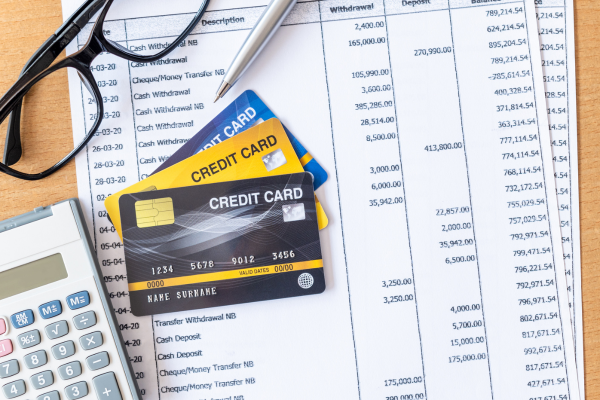
Using Credit Responsibly
Using Credit Responsibly: Tips for Financial Health and Success
Credit can be a powerful tool for managing your finances, achieving your goals, and building a strong financial future. However, using credit responsibly is crucial to avoid debt traps and maintain good financial health. Here’s a guide to help you use credit wisely and build a positive credit history.
1. Understand the Basics of Credit
Before you start using credit, it’s essential to understand how it works and its impact on your financial health.
Key Concepts:
- Credit Score: A numerical representation of your creditworthiness based on your credit history. A higher score typically means better credit terms.
- Credit Report: A detailed account of your credit history, including your accounts, payment history, and outstanding debts.
- Interest Rates: The cost of borrowing money, expressed as a percentage of the total amount borrowed.
2. Use Credit Wisely and Sparingly
Credit should be used as a tool to enhance your financial situation, not as a means to cover everyday expenses or impulsive purchases.
Tips for Using Credit Wisely:
- Budget your spending: Only charge what you can afford to pay off within the billing cycle.
- Avoid maxing out: Keep your credit utilization below 30% of your credit limit to maintain a healthy credit score.
- Plan large purchases: Use credit for planned, necessary expenses rather than unplanned or impulsive buys.
3. Pay Your Bills on Time
Timely payments are crucial for maintaining a good credit score and avoiding late fees.
Strategies for Timely Payments:
- Set up reminders: Use calendar alerts or smartphone apps to remind you of due dates.
- Automate payments: Set up automatic payments to ensure your bills are paid on time.
- Monitor due dates: Keep track of your payment due dates and plan your budget accordingly.
4. Pay More Than the Minimum
Paying more than the minimum payment each month helps reduce your debt faster and saves you money on interest.
Benefits of Paying More Than the Minimum:
- Reduce interest: Paying more decreases the amount of interest you pay over time.
- Shorten repayment term: Accelerates the payoff process and reduces the overall debt burden.
- Improve credit score: A lower balance and timely payments positively impact your credit score.
5. Monitor Your Credit Report Regularly
Regularly reviewing your credit report helps you stay on top of your credit health and spot any inaccuracies or potential fraud.
How to Monitor Your Credit Report:
- Obtain free reports: Use annualcreditreport.com to access your free credit reports from major credit bureaus once a year.
- Review for errors: Check for inaccuracies or unfamiliar accounts and dispute any errors with the credit bureau.
- Watch for fraud: Look for signs of identity theft, such as unfamiliar accounts or inquiries.
6. Avoid Opening Too Many Accounts
While having a diverse credit mix can benefit your credit score, opening too many accounts in a short period can hurt your credit.
Tips for Managing Credit Accounts:
- Limit new credit applications: Only apply for new credit when necessary and avoid frequent inquiries.
- Consider your credit mix: Aim for a balanced mix of credit types, such as revolving credit (credit cards) and installment loans (auto loans, mortgages).
- Keep old accounts open: Maintain older accounts to lengthen your credit history and improve your credit score.
7. Use Credit Cards for Rewards and Benefits
Many credit cards offer rewards, cash back, or other benefits that can enhance your financial well-being when used responsibly.
Tips for Maximizing Credit Card Rewards:
- Choose the right card: Select cards that align with your spending habits and offer the best rewards or benefits.
- Pay off balances: Avoid carrying a balance to fully benefit from rewards without incurring interest.
- Review terms and fees: Understand the card’s terms, including annual fees, interest rates, and rewards programs.
8. Manage Debt Strategically
Effective debt management helps you maintain control of your finances and avoid falling into financial trouble.
Debt Management Strategies:
- Create a repayment plan: Develop a plan to pay off high-interest debts first and prioritize debts based on their interest rates.
- Consider consolidation: Look into consolidating multiple debts into a single loan with a lower interest rate if it helps simplify payments and reduce costs.
- Seek professional help: If you’re struggling with debt, consider consulting a credit counselor or financial advisor for guidance.
9. Build and Maintain a Positive Credit History
A positive credit history is essential for securing favorable credit terms and achieving your financial goals.
Ways to Build Positive Credit:
- Use credit responsibly: Make timely payments, keep balances low, and use credit wisely.
- Diversify credit types: Having a mix of credit accounts, such as credit cards and loans, can benefit your credit score.
- Maintain a low credit utilization ratio: Keep your credit card balances low relative to your credit limits.
10. Educate Yourself About Credit
Understanding the nuances of credit can help you make informed decisions and avoid common pitfalls.
Ways to Educate Yourself:
- Read financial literature: Explore books, articles, and online resources about credit and personal finance.
- Take online courses: Enroll in financial literacy courses to gain a deeper understanding of credit management.
- Consult experts: Seek advice from financial professionals to clarify any questions or concerns.
Conclusion
Using credit responsibly is essential for maintaining good financial health and achieving your long-term financial goals. By understanding the basics of credit, using it wisely, paying bills on time, monitoring your credit report, managing debt, and educating yourself, you can build a strong credit profile and enjoy the benefits of credit without falling into debt traps. Start applying these principles today and take control of your financial future.



